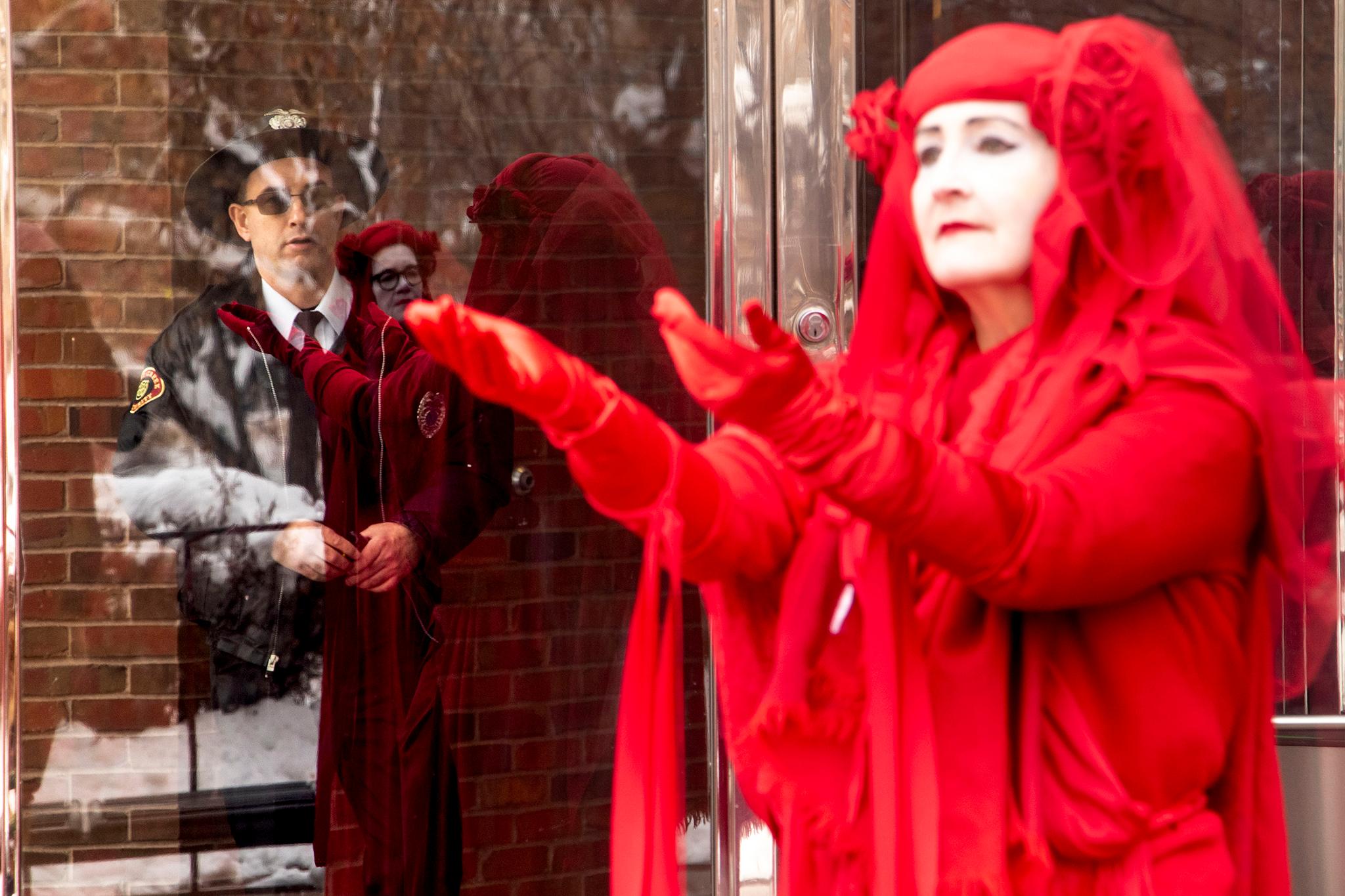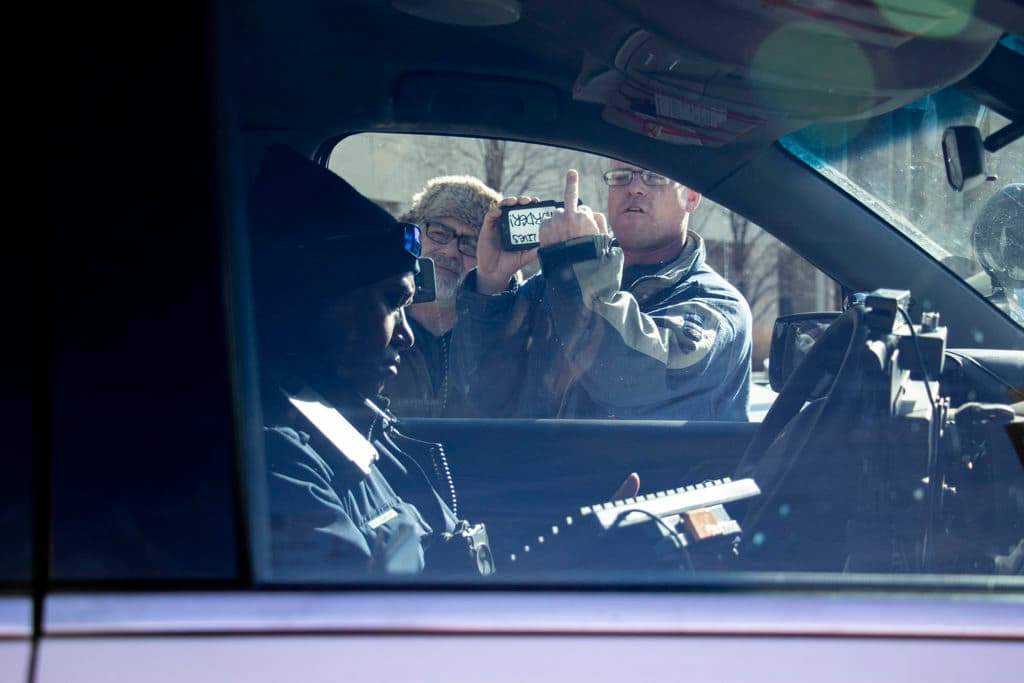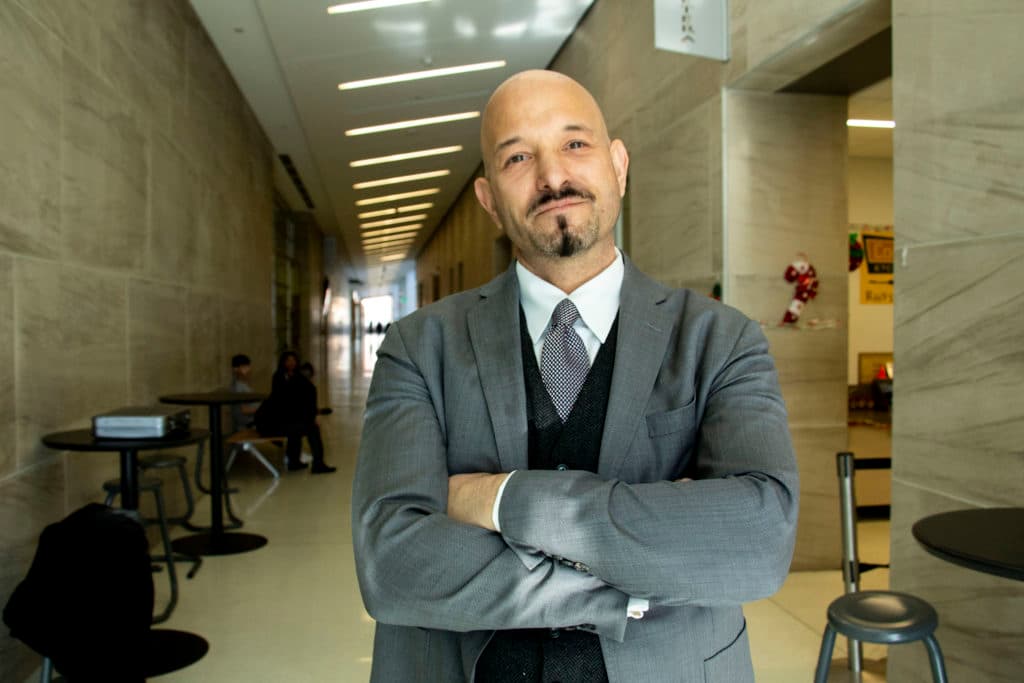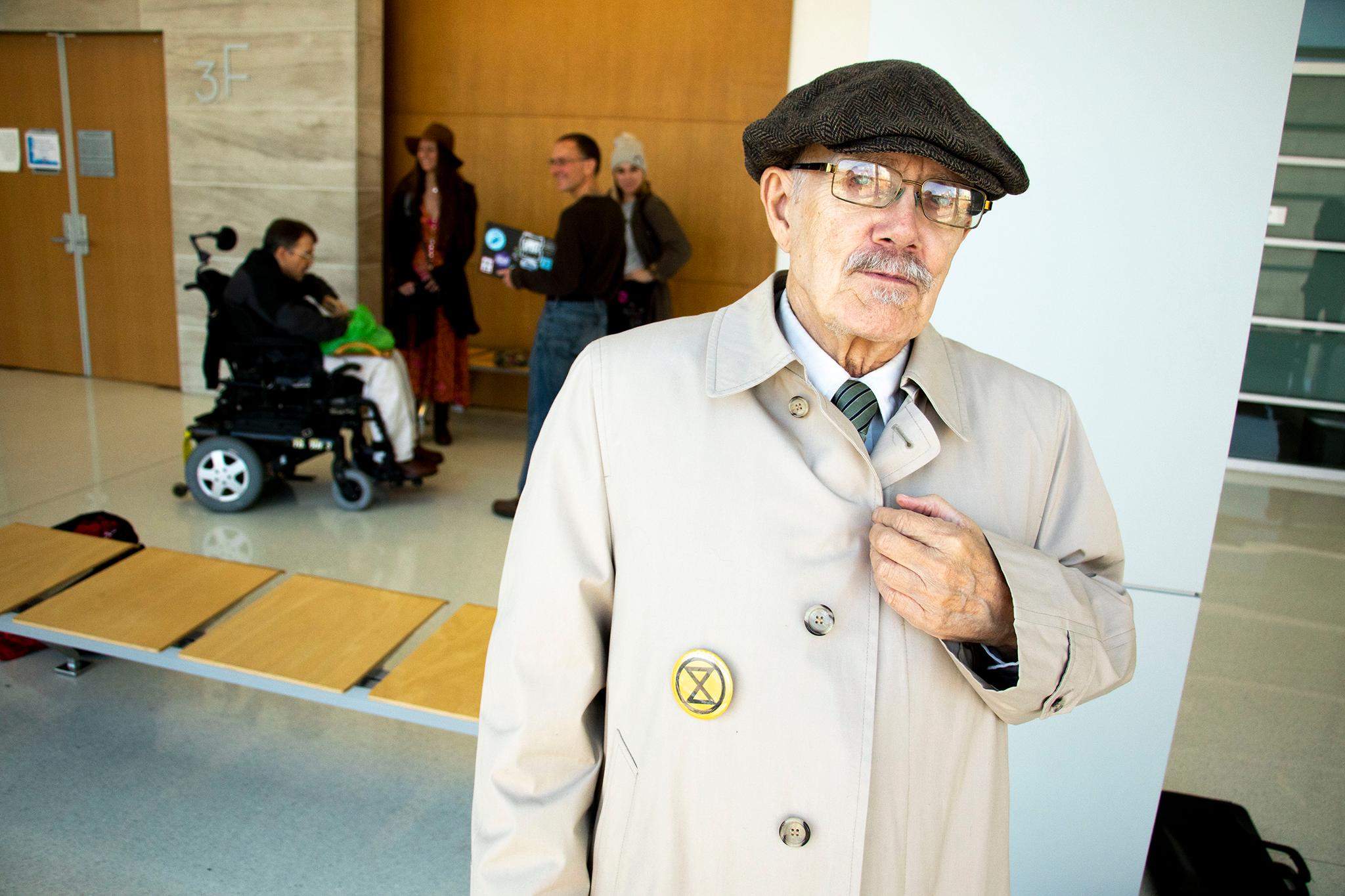About a dozen people gathered at the Lindsey-Flanigan Courthouse downtown Wednesday, piling into the benches at a top-floor courtroom where Fred Henrich was scheduled to stand trial.
Henrich, a 76-year-old activist, was charged with obstructing a street while marching down Broadway on Sept. 23 as part of two rush-hour strikes to call for government action on climate change. The march was organized by Extinction Rebellion, a nonviolent climate advocacy group that originated in the U.K.
Eight people including Henrich were arrested over the course of the two protests in September. Seven others from the group were arrested in April during a march and three were arrested during a Black Friday protest. Most of these cases were dismissed or saw the defendants take plea deals. At least two cases are still pending.
Extinction Rebellion members say they do not set out to get arrested, but they know it's a possibility. Organizers typically guess the likelihood of arrest before an event. According to Henrich, the organizers of the Sept. 23 march said that there was a low chance of arrest.
"Arrests are hard on me," Henrich said. "I never rule it out, but it has to be for something very important."
A number of climate activists in Denver say they've grown frustrated by the slow pace of climate action and less urgent strategies of other advocacy groups. Some members said they turned away from the traditional, mainstream environmental groups that have long been a stalwart in Colorado, in favor of direct action and civil disobedience, which can lead to arrest.
"Time is up. There are different types of change and one way would be pushing for a law or pushing for a candidate, but it's not fast enough," said Dave Robinson, an organizer for Extinction Rebellion. "We are the only group [in Denver] focused on civil disobedience. If enough people are in the streets, we can change the system."

Extinction Rebellion does not have any official leaders, but Robinson has been with the group since it began in Denver. Its first meeting at a pizza joint on Colfax drew about 25 people. Its events now routinely bring around 100 people to the streets. The group has a list of demands that includes reaching net-zero carbon emissions by 2025.
"People hear that and say it's impossible," Robinson said. "It's only impossible because it's not being treated as an emergency."
Other Denver groups have adopted flashier tactics as the urgency surrounding climate change builds.
Earlier this month the youth-led climate group Sunrise Movement released a fabricated press release meant to look like it came from the office of Denver Mayor Michael Hancock. It purported to say that the city government had declared a climate emergency and apologized for letting oil and gas company Anadarko sponsor a climate event. A representative from the group lied about the release's origins on-the-record to a Colorado Public Radio reporter and misled other news outlets. The group later described the stunt as "artistic activism."
While Extinction Rebellion's civil disobedience has led to arrests, its actions have caused little controversy. The group lays out rules before every event and requires buy-in from all participants to agree to. Operating within these limits, some of the group's members say they feel unfairly targeted by police. Several dozen police officers were on the scene of the protest on Sept. 23 before the event even started.
"It sucks because everybody that is passing by us is seeing this huge police force when we are trying to engage people about the climate," said Matt Wozniak, who was arrested at the protest and took a plea deal last week. "We aren't violent, we aren't criminals, we have jobs. We have all these police officers discrediting us."
Extinction Rebellion has also had to deal with the perceptions of other activists.
Before the jury came in for Henrich's trial, a group of activists, some affiliated with Occupy Denver, were in the hallway discussing another case and talking negatively about the trial judge, Andre Rudolph, within earshot of the awaiting jurors. One of the Occupy activists later screamed expletives and flicked his middle finger at the judge. Rudolph ordered a group of sheriff's deputies to escort the activists from the courthouse, which triggered yells and protests.


In an ensuing altercation, two women, Janet Matzen and Caryn Sodaro, were arrested for trespassing. The Extinction Rebellion activists were allowed to stay in the courthouse.
Rudolph ruled that the jury had been tainted by the conversation outside of the courtroom and ordered a new trial in February. The activists that had been escorted from the courthouse used sidewalk chalk to write "traitors" and other phrases outside the courtroom.
These activists are not affiliated with Extinction Rebellion but were there to show support for Henrich and other defendants in unrelated trials in the courthouse.
Henrich's lawyer, Jason Flores-Williams, who has taken on several Extinction Rebellion defendants pro-bono, denounced the other group of activists and referred to their actions as an "outburst" and a "setback."
"Ultimately what this comes down to is that those who believe that we need to fight for a better world need to up their game," said Flores-Williams, referencing the other activists. "It's time to make arguments that challenge people instead of just acting adolescent and infantile."













